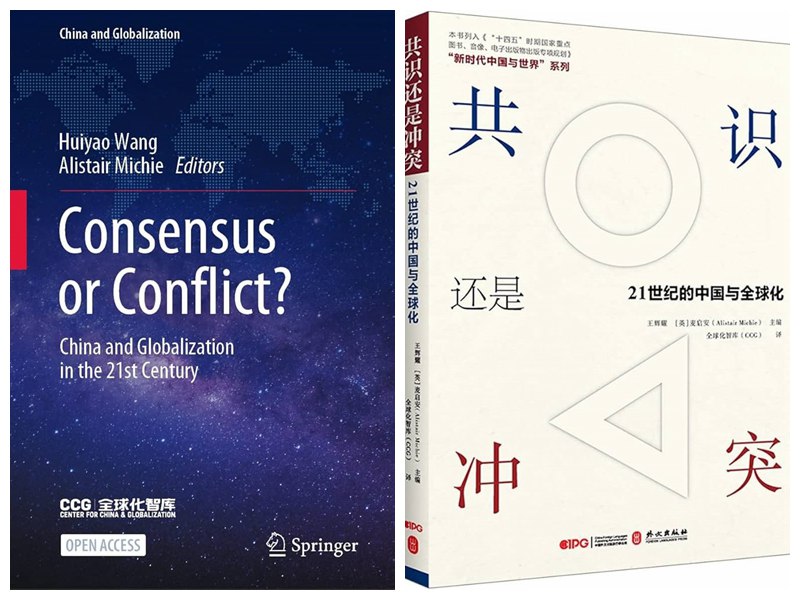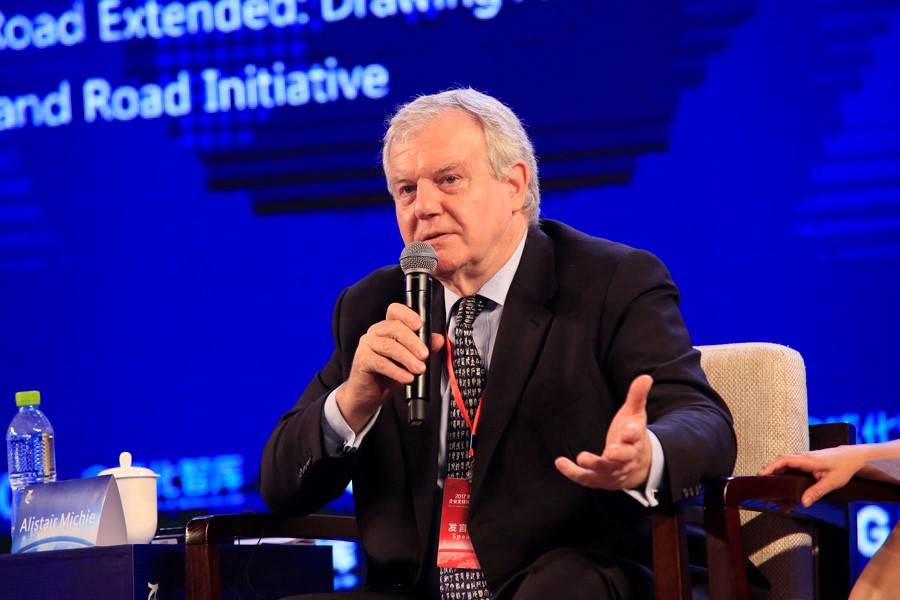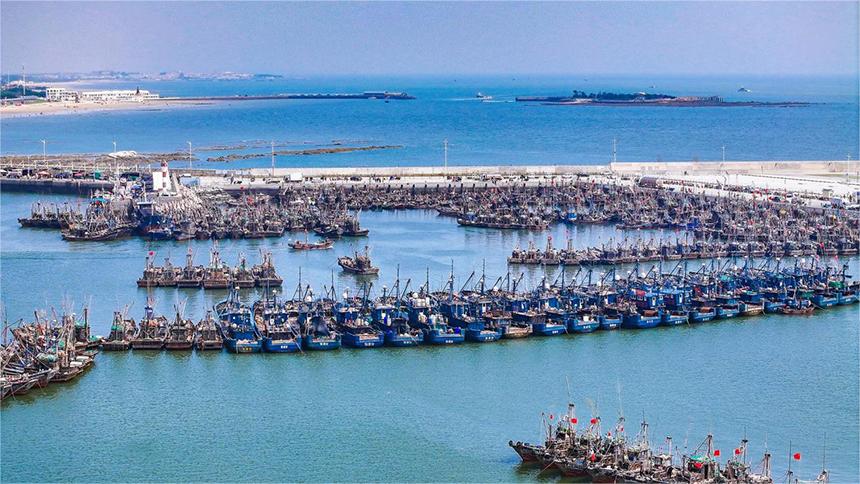Alistair Michie: Bridging China and the world through innovative ways
This was a long-anticipated dialogue.
As an active participant in China-UK cultural exchange, a leading expert in public diplomacy and China issues, as well as the winner of the 2013 Chinese Government Friendship Award, we have wanted to interview Alistair Michie for a long time. What made him appealing to us was his passion and lifelong commitment to promoting cross-cultural cooperation between China and the UK.

Alistair Michie (Photo/Patrick Shead-Simmonds)
But this passion means Michie has a very demanding schedule with a variety of China related responsibilities. These include being Chairman of the International Board at the Centre for China and Globalisation (CCG) and Government and Business Advisor for the Hampton Group.
So, during his summer vacation, we travelled north to the fishing town of Pittenweem, near St Andrews, to visit Michie at his UK home. We asked Michie to reflect on his first encounter with China and how he became acquainted with the country, as well as to share his insights on UK-China exchanges. He emphasised the necessity for China to innovate in building understanding and fostering dialogue to address communication challenges. For Michie, the pursuit of cross-cultural dialogue between East and West remains a timeless and crucial endeavour.
Opening another window for communicating with the world
People's Daily Online: Over the last 30 years, through your deep interest in China, you have visited and worked in all 28 provinces and autonomous regions in China. Could you share your most memorable visit? How did it influence your perspective on the country?
Alistair Michie: My first visit to China was in 1993, which profoundly influenced my more than 30 years of engagement with the country. When I crossed the Grand Canal, I was struck by its scale. My Chinese friends told me it ran from Hangzhou to Beijing, a distance comparable to that between Miami and New York. However, I could not find satisfactory answers in China regarding who built it, why, and when. It was only after I returned to the UK that I discovered Joseph Needham and his 30-volume work, "Science and Civilisation in China". A quote at the beginning of the series really struck me, "No ancient country in the world did more in civil engineering, both as to the scale and skill than China, yet very little has been done towards making known the history of it". Those words ignited my curiosity and set me on a 30-year journey to understand China and how it has modernised and industrialised at an unprecedented scale and speed over the last 40 years.
Needham has had a very significant influence on my life since I first encountered his work. Although his "Science and Civilisation in China" series—an extensive study of Chinese scientific development that bridges science and the humanities—is a flagship publication of Cambridge University Press, it is not well known outside of China. This gap of knowledge motivated me in 1998 to use the Needham volumes to create a ground-breaking eight-part documentary film series. The approach was innovative as the films used Chinese people themselves to tell viewers outside China the history of China. This approach was in stark contrast to much of the descriptions of China around the world, where you have non-Chinese commentators giving their views. These commentaries are very often just opinion, rather than an accurate report. This film project was called "The Dragon's Ascent" and, at its peak of development embraced a crew of over 250 film-makers.
People's Daily Online: Looking back at your engagement with China over the years, how do you understand this ancient civilisation?
Alistair Michie: My experience of traveling and working in China over the past 30 years has shown me that the world has much to learn from China's 5,000-year history. It is the longest continuous civilization in the world. Its governance systems have provided centuries of stability, extending over 2,000 years. There is a great deal that people, especially from the Global North—Europe and North America—could learn from understanding China. Therefore, there is a strong need for exchange that can deliver mutual benefit, and mutual education. All these elements are crucial for moving towards a world that is safer, more peaceful, and aligned with the idea of a community with a shared destiny.

The covers of the English and Chinese editions of Alistair Michie's book "Consensus or Conflict?"
People's Daily Online: In 2023, the Chinese edition of "Conflict? – China and Globalisation in the 21st Century", co-authored by you and Wang Huiyao, was published. The book brings together 30 leading international scholars to explore the challenges of globalisation and governance at this critical juncture in human history. What is the main challenge that you have identified?
Alistair Michie: Wang Huiyao, the co-founder of CCG, persuaded me to co-edit this book with him. I had doubts we could persuade a mix of distinguished leaders from inside and outside China to contribute essays of between 3,000 to 5,000 words. But I am delighted how we succeeded in gathering over 30 distinguished writers from China and around the world. To date the book has been downloaded in English approaching 400,000 times. The essays in the book reflect on the challenges humanity faces today - especially from the perspective of the Global South, which embraces 88 percent of the population of the world. A key theme of the book is highlighted in my essay that is titled "Communication Crisis". I believe the core of this crisis is the relationship between China and the world. In the past decade, the pivotal relationship between China and the US has become more negative and aggressive. It is a serious challenge for all humanity with the USA being home to only 4 percent of the people of the world. Yet the USA appears determined to maintain its hegemonic position and is unwilling to be challenged by another nation.
So, how do we deal with this communication crisis? I do not think we will make much progress outside China because many people are influenced by the US and their eyes, ears and minds are closed and do not want to explore and understand China better. China must recognise that there is a high degree of arrogance among people in the US and Europe; they believe they possess all that is positive and good, whether in science, governance, or other areas of development.
Therefore, I believe a major responsibility and challenge for China is how it can evolve and communicate more effectively. I believe China has the potential to play a leading role in resolving this global communication crisis, but this requires a change in mindset. China needs to adopt more innovative and imaginative approaches to build bridges of understanding and improve communication.
Solving the communication crisis

Alistair Michie speaking at the 4th China Outbound Forum in Sanya, 2017 (Photo/People's Daily Online)
People's Daily Online: Geopolitical conflicts, terrorist attacks, and the refugee crisis…In our precarious world today, countries are facing similar problems and if we want to sail towards a bright future, countries need to help each other. How do you understand China's proposal of "a community of a common destiny"?
Alistair Michie: I believe this concept is a significant contribution from China. It represents a way to build consensus, bringing nations and people together. This consensus is crucial. The reason is that consensus is the only way humanity can address potential catastrophic global threats, such as climate change, nuclear weapons and artificial intelligence regulation. The challenge, as I have described, lies in the communication crisis; it is very difficult to make progress and get people outside of China to accept the concept of "a community of a common destiny". However, it is crucial that China persists and finds effective ways to promote this idea.
The Global South, which includes China, encompasses by far the largest portion of the world's population, whereas the Global North, including Europe and the US, accounts for only 12 percent of the population. Despite this, Europe and the US have a dominant influence on global governance. The US, in particular, has been reluctant to allow major countries from the Global South to participate more actively in global governance. In fact, the US has actively worked to prevent Global South countries from advancing in key international organizations such as the UN, WTO, WHO, IMF, and World Bank.
People's Daily Online: What strategies do you believe will be important and effective in improving and promoting cross-cultural communication between China and the West going forward?
Alistair Michie: One effective approach to addressing the communication crisis is for China to develop new, innovative ways of building bridges of understanding that facilitate dialogue. I have attempted to do this over the past 30 years. For instance, I organized the first ever Chinese garden exhibit at the world-famous Chelsea Flower Show in London. The idea was to showcase China's 2,000-year history of horticulture and gardening. The passion of British people for gardening opens the way for mutual understanding to evolve when they grasp Chinese people share very similar interests and passions.
The thing I am really focused on now is classical music. For some years I have felt classical music has the potential to match the great success China has had with Olympic Sport to build positive global exchange. Building understanding through shared passions, such as classical music, can foster dialogue and conversations, which are essential for overcoming the communication crisis. I saw an opportunity for people to people cross cultural exchange when the Shenzhen Symphony Orchestra visited the UK in 2024. This tour marked the first ever Chinese orchestra to participate in the commercial classical music concert tour circuit. The outcome created a great positive response from British audiences. Also, the Chinese ambassador in London, Zheng Zeguang, and the British ambassador in Beijing, Caroline Wilson, have both been very supportive. Shenzhen's UK concert tour also paved the way for great interest in the Royal Philharmonic Orchestra's nine concert tour in China in August 2024.
Another vital way to tackle the communication crisis is through student exchange. China has also taken positive steps by encouraging millions of young Chinese to travel, work, and study abroad. Expanding these opportunities is crucial. Conversely, China should encourage people from other countries to travel, live, work, and study in China. This exchange is vital for breaking down the barriers of the communication crisis and building more bridges of understanding. By doing so, we can form a global consensus and move towards a community of shared destiny.
People's Daily Online: This year marks the 10th anniversary of China's Belt and Road Initiative. The initiative has contributed to the development of many countries, improved lives, and promoted cross-cultural dialogue. Reflecting on your involvement with the Belt and Road Initiative, what specific collaboration or project stands out to you?
Alistair Michie: The Belt and Road Initiative is of immense importance for humanity because it represents China's proactive efforts to build connections and bridges of understanding between many nations. I have been involved in several projects supporting the Belt and Road Initiative. Currently, I am advising the Hampton Group, which is actively engaged in the Middle East and North Africa. By encouraging a new communication mindset, I am confident that classical music has a strong potential to build new bridges of understanding between China and the Middle East. These kinds of innovative initiatives are where the Belt and Road Initiative can contribute to resolving the communication crisis. Overall, I believe that the Belt and Road Initiative is a crucial tool for driving greater interconnectivity and advancing the concept of a community of shared destiny.
Photos
Related Stories
Copyright © 2024 People's Daily Online. All Rights Reserved.









